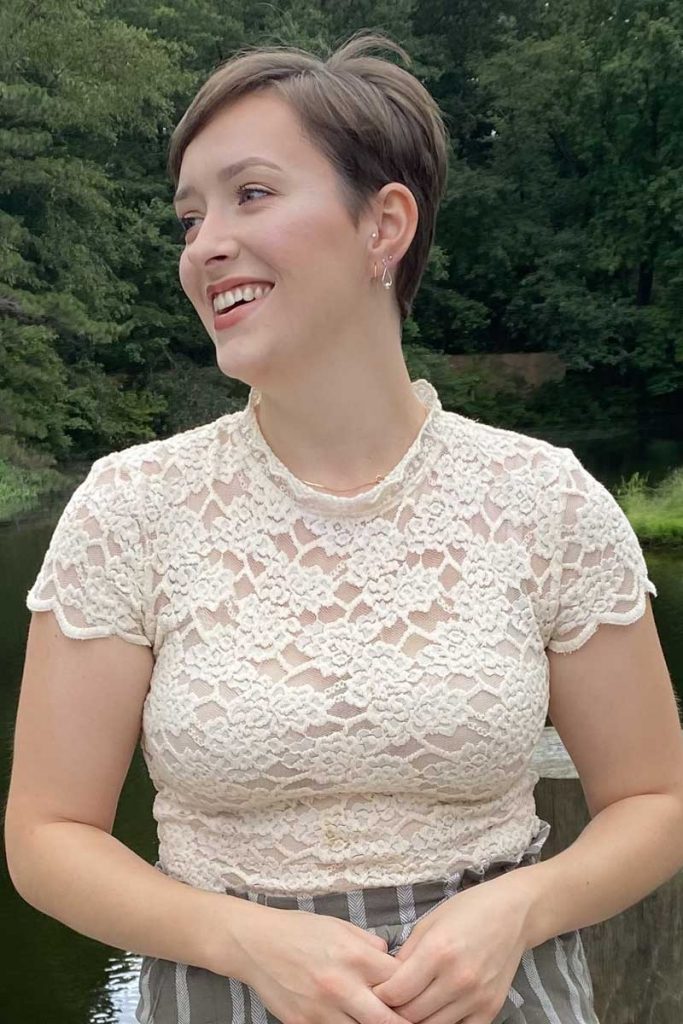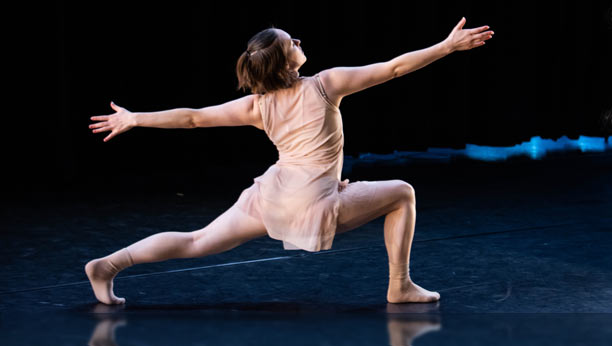Major: Dance
Minor: Information Systems

Title: “The Obedient Body: Investigating Trained and Culturally Informed Movement Biases”
Describe your project: As we grow up we learn how to behave and what to believe in. This may vary from one person to another simply depending on how we are raised. My question is, in what ways do an individual’s upbringing influence the way they move or dance? For example, as a woman, I have been taught to be unoffensive which could translate to my natural tendency to move with fluidity as opposed to moving through fixed shapes (A.K.A. aggressive movement).
To take it a step further, are there identifiable patterns of movement among similar demographic groups of people that could speak to a larger social phenomenon or ideal? This movement research is intended to discover if our biases, in this case our learned ideas and beliefs, inform the way we move as dancers and behave as human beings in society.

Who is your mentor for your project?
Ann Sofie Clemmensen, assistant professor of dance, is my mentor for this project. As a mentor she has been an encouraging figure who supports and ideas and assists me in shaping realistic and achievable goals in this project and otherwise.
How did you become interested in this project?
While taking GWST 210: “Intro to Critical Sexuality Studies” I learned about sociologist Michelle Foucault’s theory of the Docile Body and how, in reality, that conditioned body is highly gendered. The text I read focused on the physical behaviors each of us act out every day and how this is different depending on how we may have been raised or socialized as men and women. Soon after reading this text I attended the American College Dance Associations 2020 regional conference at the University of Maryland, College Park where I met a UMD dance professor, Crystal Davis, who has done research into how our biases affect our choices within dance. Serendipitously, these events came together to connect and inform what has become my own independent research into how biases, or other social conditioning, inform our movement choices.
What has been the hardest part about your research/what was the most unexpected thing about being a researcher?
One of the most difficult obstacles has been finding literature about movement research, dance research or otherwise related texts. There is not much dance literature available so adapting to this space where answers are not as readily available has been different. This has also been what I have learned. Of course, entering the research I knew I would be looking for answers to questions that may or may not have been asked before. Though the realization that the answers to my questions have not in fact been written down and are going to be found through my own investigation was unexpected.
What has been the most rewarding part?
Learning to trust myself.
How will you disseminate your research?
This year I will create a dance work, most likely a creative dance film, to share through a live stream. I plan to share the work and present my observations independently through social media, through the Dance Department, as well as share recordings during the 2021 virtual URCAD event.
What is your advice to other students about getting involved in research?
Be forgiving with yourself and take advantage of having a productive relationship with your mentor. They believe in you and they are there to help! If you have a question, go out and find the answer.
What are your career goals?
After graduating, I will pursue a professional career in dance performance. This will most likely include more opportunities for conducting movement research and engaging in activism through dance.
9/29/2020